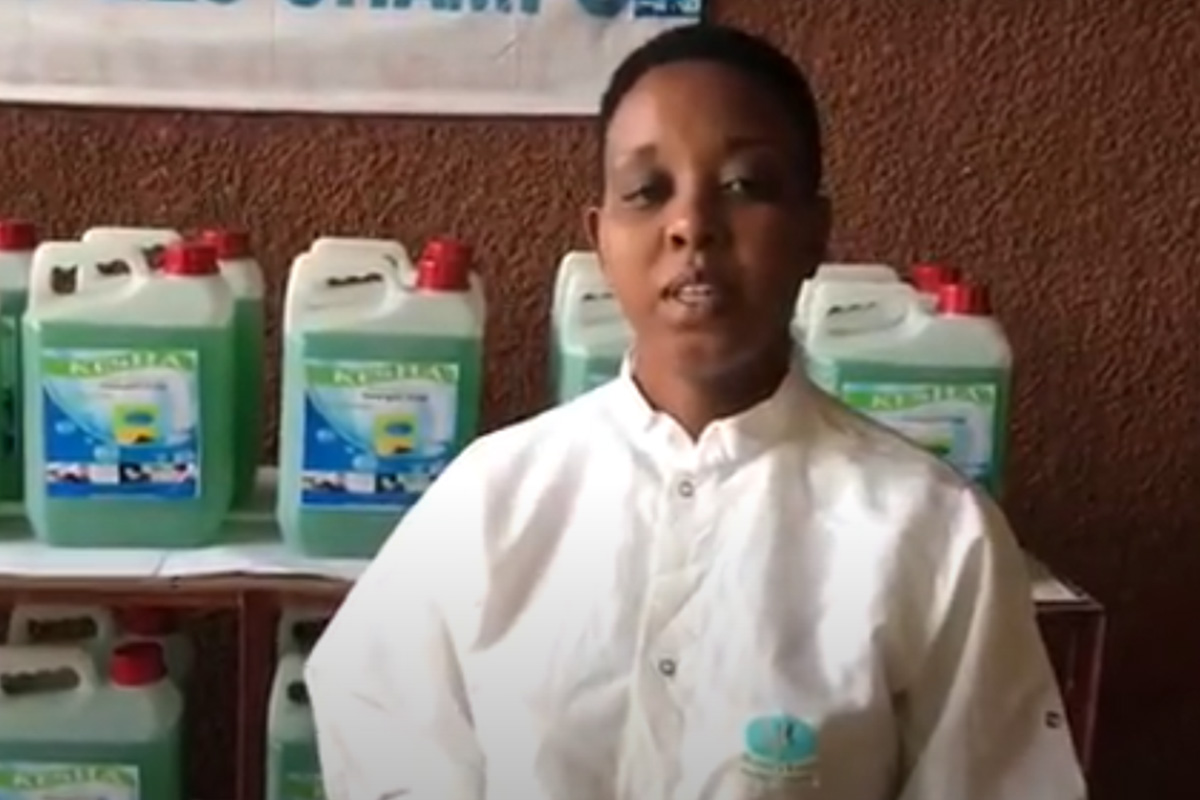
“I chose to become self-employed to be free and not to be mistreated by an employer.”
Peace can take unexpected forms. For instance: liquid soap.
Ngozi is one of 18 provinces in Burundi—a temperate, northern region where the capital city, also named Ngozi, has just over 25,000 people. It is a far cry from Bujumbura, the largest city in the country.
Still, Burundi is the second-densest country in Africa, trailing only neighboring Rwanda. The density made for tragedy in 1993, when civil war erupted, lasting 12 years and claiming over 300,000 lives. Violence left society broken.
Since 2005, many Burundians have worked to heal wounds. They have carried trauma, held onto each other, and reached across divides—sometimes with the help of organizations like Search for Common Ground.
Today, the density of Burundi carries a different meaning: bustling networks of economic activity. In Ngozi, Dorine Niyongabo noticed that hotels, restaurants, hospitals, and car-washers were running through liquid soap. Every day, buyers were demanding more.
Most companies were turning to Savonor, the main soap manufacturer in Burundi. Savonor employed over 1,500 employees, ranking as one of the largest private companies in the country, but often charged high prices. Transportation and branding came at a cost.
Dorine saw an opening, and she decided to step through it. Drawing from her savings and the generosity of family, she gathered the equivalent of just over $1,500—enough capital to launch a business.
“I started with soap for cleaning and laundry and then moved onto shower and hand-washing soap,” she said. “I was lucky because the raw material was there.”
Day by day, Dorine forged relationships with local businesses and built her own company. Through her soap business, she achieved a measure of economic security: a key part of her piece.
She reflected on her story—from initial idea to business growth—as part of Nd'umu DG (I´m a boss), a Shark Tank-style TV show produced by Search for Common Ground. In the show, contestants like Dorine pitch their business ideas to a panel of potential funders. The goal of Nd'umu DG is to spur industry and bridge identity divides by showing contestants from different ethnicities and backgrounds.
In applying to the show, Dorine was hoping to grow her business even further—and to build on her personal dreams of a better life.
"I chose to become self-employed to be free and not to be mistreated by an employer," she said.